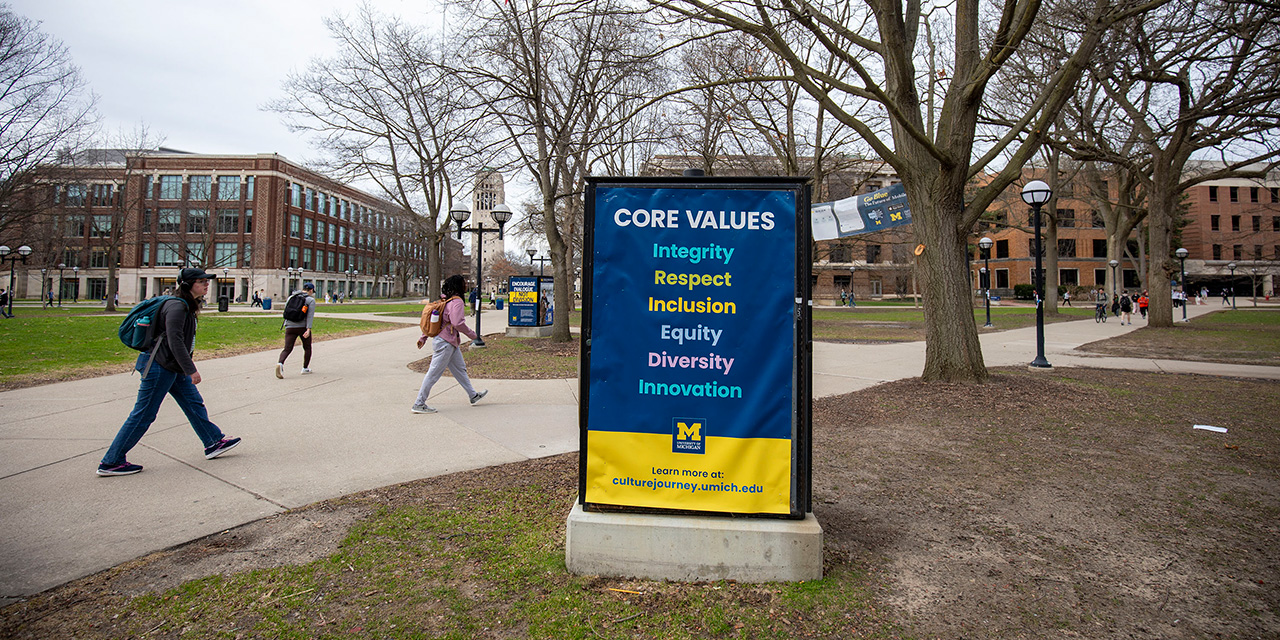
On July 29, the Department of Justice sent a letter to all federal grant recipients reaffirming a longstanding principle of American civil rights law: discrimination is unlawful. The nine-page memo, signed by Attorney General Pamela Bondi, lists several hiring practices that constitute illegal discrimination—many of them ubiquitous in higher education.
For years, I’ve reported on race-based hiring in academia. I’ve repeatedly found that American universities act with impunity. As a professor once told me, “every day, the universities wake up and break the law.” It’s not surprising, then, that universities have embraced virtually every practice that the DOJ deems illegal. That could mean serious consequences. The DOJ’s announcement offers “best practices” that will help institutions avoid “the revocation of federal grant funding.” If the department enforces its guidance, America’s institutions of higher education face a massive reckoning.
Finally, a reason to check your email.
Sign up for our free newsletter today.
One practice that the DOJ lists as unlawful is “[p]referential treatment.” This occurs when an employer gives benefits to “individuals or groups based on protected characteristics in a way that disadvantages other qualified persons.” Any institution that “prioritizes candidates from ‘underrepresented groups’” violates the law.
It’s an open secret that universities have long engaged in preferential treatment. The examples are endless. One faculty job rubric that I acquired from UT San Antonio, for instance, listed “female/URM” (underrepresented minority) as a scoring category. Similarly, in an email that I acquired from Northern Illinois University, a computer science professor passed along the department’s search committee evaluation rubric, which scored applicants on their “Diversity” and awarded points for those who were “non-male or non-cauca[s]ian.”
Another practice that the memo deems illegal is “diverse slate” policies, whereby employers mandate “demographic representation” in job candidate pools. As I reported last month, university deans and diversity officers around the country routinely conduct “diversity checks” and threaten to delay or cancel searches with insufficiently diverse applicant pools, shortlists, or finalist slates. The practice gives administrators, including diversity officers, extensive power in faculty hiring.
Most significantly, the memo singles out the use of “unlawful proxies”—that is, seemingly neutral hiring or admission criteria that in practice “function as substitutes for explicit consideration of race, sex, or other protected characteristics.” These workarounds, the department notes, are also unlawful. One example that the letter cites: so-called “diversity statements” that advantage applicants who “discuss experiences intrinsically tied to protected characteristics.”
Universities across the country have required such statements of faculty candidates. In an email exchange from the University of Illinois Urbana Champaign that I acquired, one professor on a search committee asked a human resources officer to “unmask” job candidates’ demographic information so that he could identify people “who are or might be eligible” for a special fellowship. While the HR officer said that she wasn’t allowed to divulge individual information, a diversity officer chimed in with a helpful workaround: “One tool that [the department] can use in the future is the diversity statement (contributions to diversity statement). By reviewing those, they might be able to get some of the information they are looking for.”
The memo lists other potential proxies, such as policies that reward candidates for their “cultural competence,” “lived experience,” or “cross-cultural skills.” These criteria become illegal when “they are implemented with the intent to advantage or disadvantage individuals based on protected characteristics.”
Universities have long used such criteria as racial and ideological proxies in faculty hiring. One rubric that I acquired from UT Austin showed that, in a search for a professor of environmental biotechnology, 25 percent of candidates’ overall score came from the “DEI” category.
If the Department of Justice takes aim at these proxies, it will remove a set of favored tools that universities have used to discriminate, while also upending a key justification for ideologically charged hiring initiatives. In an investigative series from earlier this year, I found that universities around the country have developed ready-made career paths for scholars who share a commitment to social justice. The scholars they hire for these special fellowships and faculty roles tend to embrace ideological extremism—creating what I’ve called the scholar-activist pipeline.
These large-scale, activist-oriented hiring initiatives are often justified based on demographics. Universities frequently use ideological screening mechanisms as a proxy for race, selecting scholars for their “commitment to diversity” or prioritizing candidates whose research touches on topics like health disparities or social justice. One University of Michigan grant proposal boasted, for example, that 93 percent of scholars in the university’s Collegiate Fellows Program who “demonstrated commitments to DEI” came from “traditionally minoritized groups.”
These policies, as I’ve argued before, likely contribute to Americans’ distrust in higher education. The DOJ should prioritize rooting out these proxies. It should start by scrutinizing the network of side-door, diversity-focused fellowships, particularly the University of California’s President’s Postdoctoral Fellowship Program—which, like a number of copycat programs around the country, has been justified as a workaround to affirmative-action bans.
With real federal scrutiny, the scholar-activist pipeline might finally get shut down. The new memo gives the DOJ a blueprint to make it happen.
Photo by Bill Pugliano/Getty Images
City Journal is a publication of the Manhattan Institute for Policy Research (MI), a leading free-market think tank. Are you interested in supporting the magazine? As a 501(c)(3) nonprofit, donations in support of MI and City Journal are fully tax-deductible as provided by law (EIN #13-2912529).
Source link

















